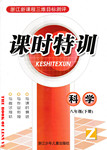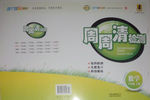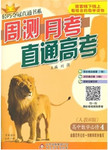题目内容
For years we have been told that encouraging a child’s self-respect is important to his or her success in life. But child experts are now learning that too much praise can lead to the opposite effect. Praise-aholic kids who expect it at every turn may become teens who seek the same kind of approval from their friends when asked if they want to go in the backseat of the car.
The implication(含义) of saying “You are the prettiest girl in class,” or talking about the goals she scored but not her overall effort, is that you love her only when she looks the best, scores the highest, achieves the most. And this carries over to the classroom.
Social psychologist Carol Dweck, PHD, tested the effects of over-praise on 400 fifth graders while she was at Columbia University. She found that kids praised for “trying hard” did better on tests and were more likely to take on difficult assignments than those praised for being “smart”.
“Praising attributes(品质) or abilities makes a false promise that success will come to you because you have that quality, and it devalues effort, so children are afraid to take on challenges,” says Dweck, now at Stanford University, “They figure they’d better quit while they’re ahead.”
1.The underlined words “Praise-aholic kids” refer to kids who are ______.
A. tired of being praised B. worthy of being praised
C. very proud of being praised D. extremely fond of being praised
2.The author quoted Dr.Dweck’s words in the last paragraph in order to make the article ______.
A. better-known B. better-organized
C. more persuasive D. more interesting
3.We can infer from the passage that _______.
A. praise for efforts should be more encouraged
B. praise for results works better than praise for efforts
C. praising a child’s achievements benefits his or her success in life
D. praising a child’s abilities encourages him or her to take on challenges
1.D
2.C
3.A
【解析】
试题分析:多年来我们被告知鼓励孩子的自尊心对孩子一生的成功更重要。但是儿童专家现在了解到太多的表扬可能会导致适得其反。被表扬上瘾的孩子会事事处处都希望被表扬。通过测试400名学生发现:表扬孩子努力比表扬聪明会使学生在考试时做得更好。
1. 词义猜测题。根据第一段的Praise-aholic kids who expect it at every turn 判断:Praise-aholic kids是 指非常喜欢被表扬的孩子。故选D 。
2. 推理判断题。通读全文,可以看到作者引用Dr.Dweck 的话是为了使文章更有说服力。A比较熟悉;B组织的更好;C 更有说服力;D 更有趣。故选C。
3.推理判断题。通读全文尤其是第一段判断;过度的表扬会造成相反的影响, 第三段She found that kids praised for “trying hard” did better on tests and were more likely to take on difficult assignments than those praised for being “smart”. 表扬努力比表扬聪明使学生在考试时做得更好。故选A 。
考点:科普类短文阅读。

 浙江新课程三维目标测评课时特训系列答案
浙江新课程三维目标测评课时特训系列答案 周周清检测系列答案
周周清检测系列答案 轻巧夺冠周测月考直通高考系列答案
轻巧夺冠周测月考直通高考系列答案